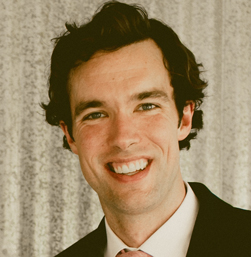In our statewide education agenda released earlier this year, we call for a new set of foundation skills to be the focus of our education system. Based on the work of learning scientists Kathy Hirsh-Pasek and Roberta Michnick Golinkoff in their book Becoming Brilliant, we propose that the 6 Cs – collaboration, communication, content (moving from surface-level knowledge a deep understanding of big ideas), critical thinking, creative innovation, and confidence – are the skills that will enable all students to thrive in a world in which smarter and smarter machines are fundamentally changing the nature of work.
When we talk to people about this, heads nod. People generally seem to agree – these are the skills our students need.
But then the inevitable question arises: How do we do it? And how do we measure it?
A consortium of independent schools across the country may be showing us the way. Billed as the Mastery Transcript Consortium, this group of over 100 prestigious college prep schools is trying to redesign the high school transcript, to move the focus away from grades earned in discrete courses like math and history, to the mastery of cross-disciplinary skills and competencies. So instead of an A in Biology, and a C in English, a student’s transcript will show that she’s demonstrated mastery in her ability to “analyze and create ideas and knowledge” or “solve new problems that don’t have rule-based solutions.” A student’s transcript will show how they’re doing in developing the 6 Cs.
This effort demonstrates the gulf that exists between the education that the affluent receive, and what everyone else gets. In our current system, an over-emphasis on standardized tests has made narrowly defined math and reading skills the sole focus of most schools serving non-affluent students. When this happens, students lose out on the chance to do many of the things listed on the mastery transcript, like “develop cross-disciplinary knowledge and perspective,” “use knowledge and creativity to solve complex ‘real-world’ problems,” and “work effectively in a climate of ambiguity and changing priorities.” In other words, while affluent students are being measured on their progress in developing core 21st century competencies, non-affluent students are being measured on their ability to complete test-prep exercises.
In fact, while calls for “accountability” grow ever-louder for our non-affluent schools, the mastery transcript effort demonstrates a shift further away from a focus on performance and towards a focus on authentic learning. Proponents of progressive education have for years written about how traditional grading practices are not aligned with really important outcomes we care about – like student motivation, curiosity, deep understanding, and a love of learning. They argue that traditional grading systems shift students’ focus away from learning interesting things, and towards worrying about what is and isn’t on the test.
While it may seem controversial, doing away with traditional grading systems – replaced by narrative grades and conferences to reflect on student learning – is far from unheard of. Independent schools across the country – many of whom are in the Mastery Transcript Consortium – have never assigned traditional grades, based on the idea that grades shift student’s focus away from learning, genuine interest, and curiosity. The Khan Lab School – the independent school set up by Khan Academy founder Sal Khan – uses a mastery-based report card for every skill, objective, and character trait they seek to develop in students. High Tech High, a public charter school network in San Diego, CA, uses public exhibitions of student projects as assessments, rather than traditional tests. And Hampshire College, a small liberal-arts college in Massachusetts, uses narrative feedback in lieu of grades to encourage a growth mindset and push students to the maximum of their abilities, rather than the minimum necessary.
A lot of ink is spilled talking about what Michigan can do to be a top ten education state or increase test scores faster or hold our schools accountable. While well-intentioned, these pursuits largely miss the point. We should instead be looking for levers that alter students’ daily experience in our k-12 classrooms to encourage student engagement, curiosity, critical thinking, and love of learning. The Mastery Transcript Consortium is an attempt to shift our educational focus away from performance, and towards authentic learning and a broad set of 21st century competencies. It’s a good start to the conversation.







